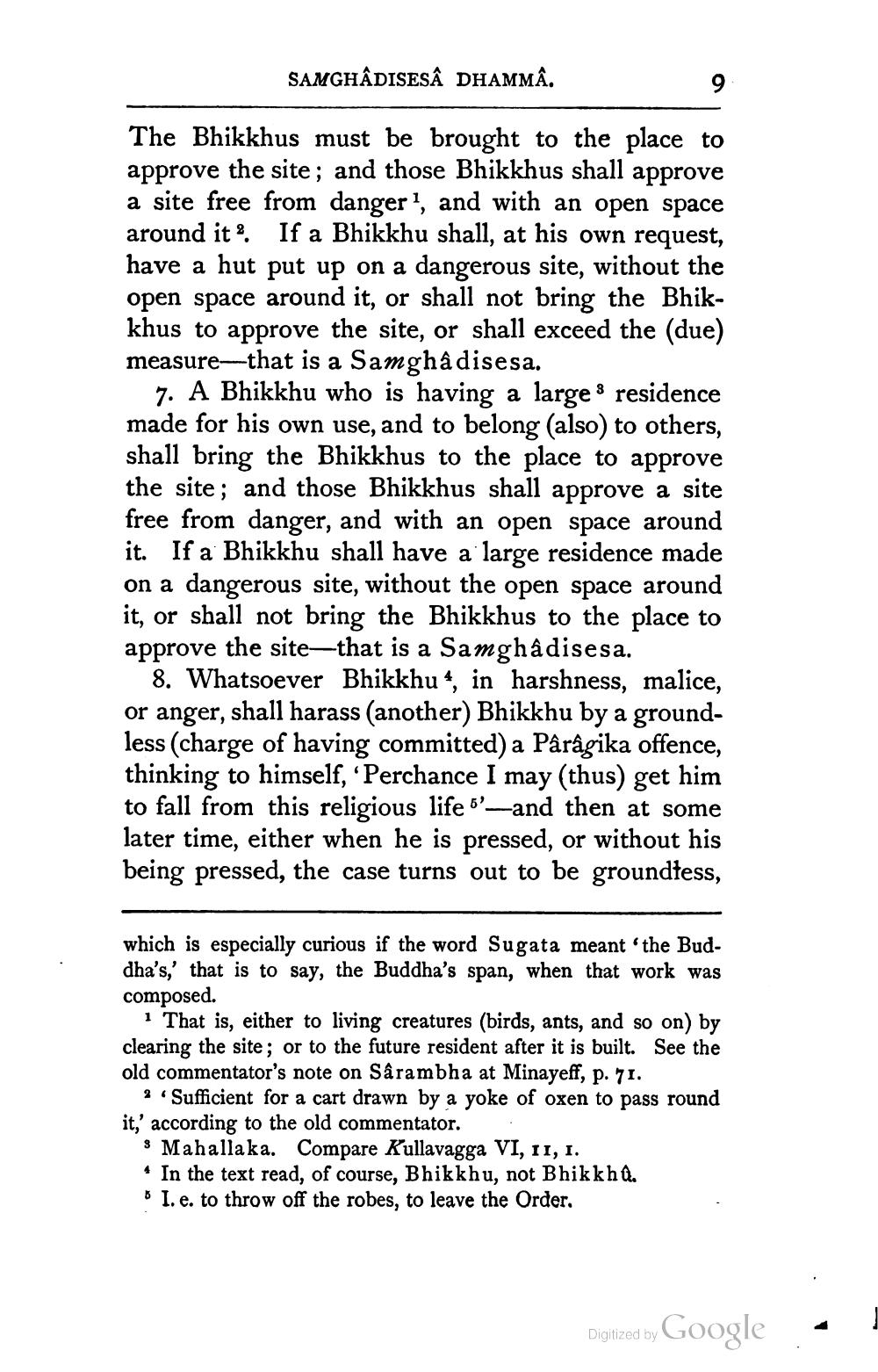________________
SAMGHÂDISESA DHAMMÂ.
The Bhikkhus must be brought to the place to approve the site; and those Bhikkhus shall approve a site free from danger!, and with an open space around it. If a Bhikkhu shall, at his own request, have a hut put up on a dangerous site, without the open space around it, or shall not bring the Bhikkhus to approve the site, or shall exceed the (due) measure—that is a Samghâdisesa.
7. A Bhikkhu who is having a large 8 residence made for his own use, and to belong (also) to others, shall bring the Bhikkhus to the place to approve the site; and those Bhikkhus shall approve a site free from danger, and with an open space around it. If a Bhikkhu shall have a large residence made on a dangerous site, without the open space around it, or shall not bring the Bhikkhus to the place to approve the site—that is a Samghâdisesa
8. Whatsoever Bhikkhu“, in harshness, malice, or anger, shall harass (another) Bhikkhu by a groundless (charge of having committed) a Pârâgika offence, thinking to himself, 'Perchance I may (thus) get him to fall from this religious life 6'—and then at some later time, either when he is pressed, or without his being pressed, the case turns out to be groundtess,
which is especially curious if the word Sugata meant 'the Buddha's,' that is to say, the Buddha's span, when that work was composed.
1 That is, either to living creatures (birds, ants, and so on) by clearing the site; or to the future resident after it is built. See the old commentator's note on Sârambha at Minayeff, p. 71.
2. Sufficient for a cart drawn by a yoke of oxen to pass round it,' according to the old commentator. .
9 Mahallaka. Compare Kullavagga VI, II, I. * In the text read, of course, Bhikkhu, not Bhikkh. • I.e. to throw off the robes, to leave the Order.
Digitized by Google
+




